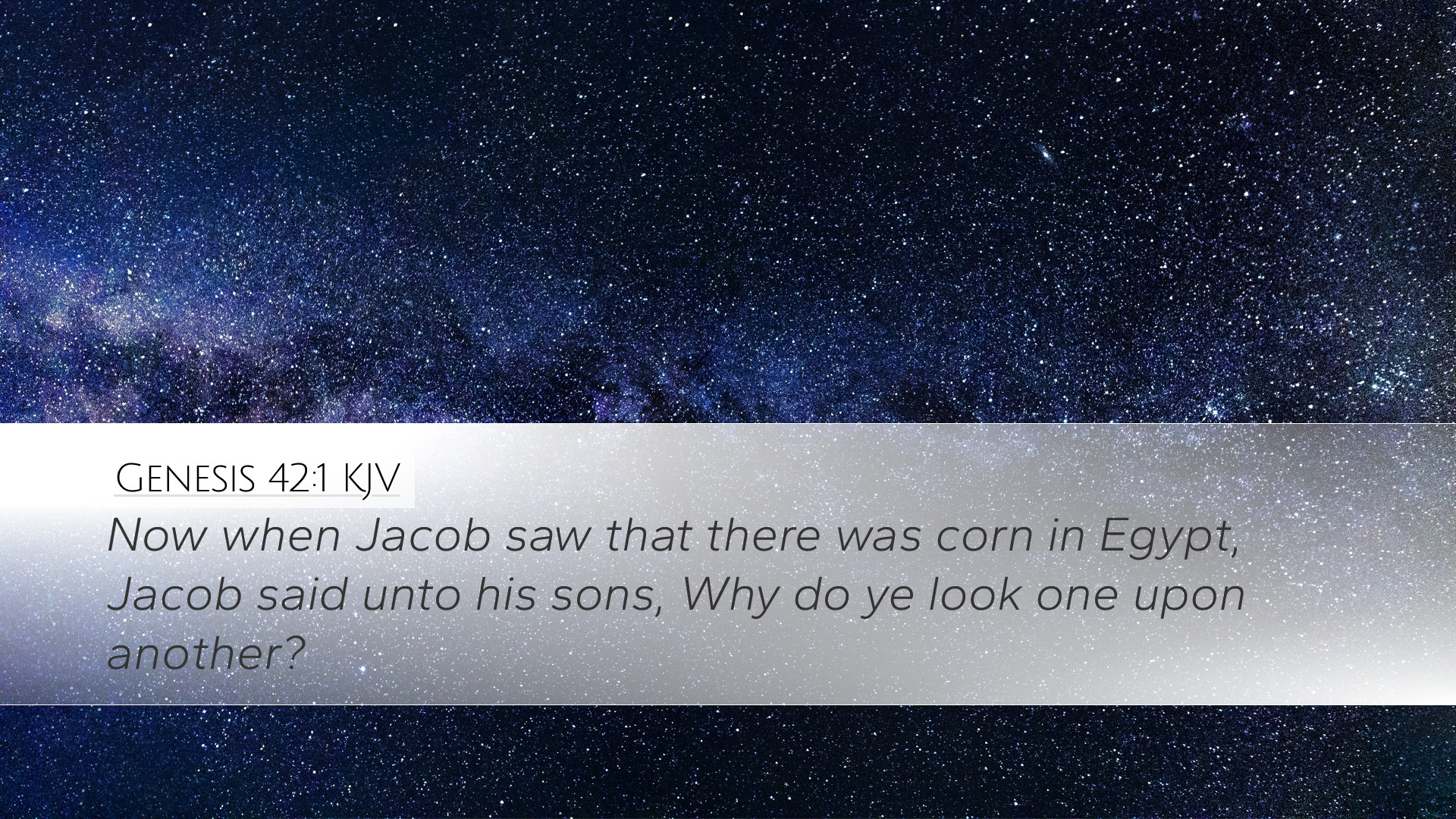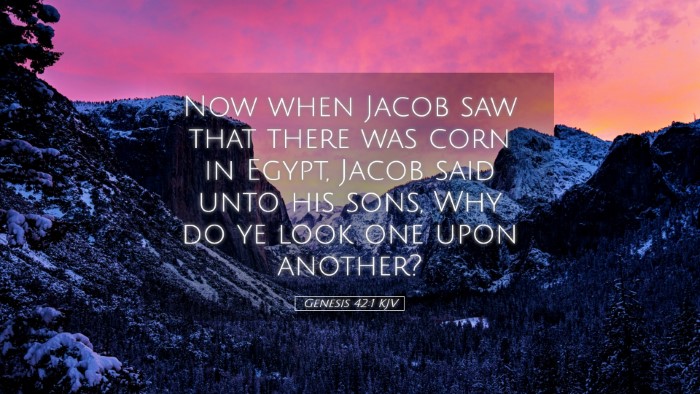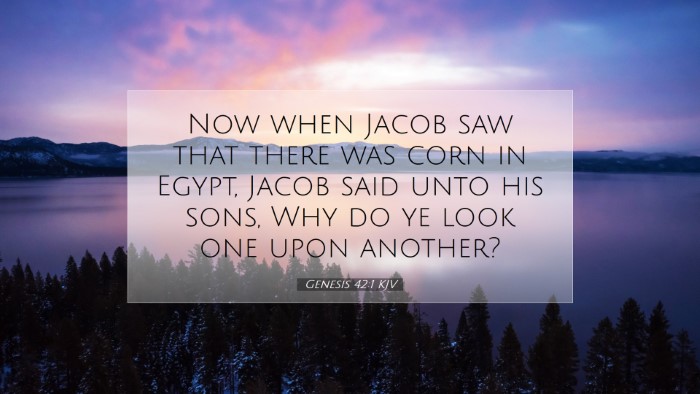Commentary on Genesis 42:1
Genesis 42:1 states: "When Jacob saw that there was grain in Egypt, Jacob said to his sons, 'Why do you look at one another?'" This verse encapsulates a pivotal moment in the narrative of Joseph and his brothers, rich in theological and practical implications.
Context and Overview
This verse occurs in a broader narrative where the famine had severely impacted the region, compelling Jacob to consider Egypt as a source of sustenance. The unfolding drama features themes of providence, family dynamics, and the realization of past wrongs.
Theological Insights
Commentators across the centuries have drawn profound theological reflections from this simple yet layered declaration by Jacob. Notably, Matthew Henry expounds on Jacob's recognition of need, portraying him as a father reflecting on his family's welfare while grappling with the complex relationships within.
- Divine Providence: Henry emphasizes God's hand in the famine, suggesting that it serves as a precursor to the reunification of Jacob and Joseph, highlighting God's sovereign orchestration of events for the fulfillment of His promises.
- Human Responsibility: Albert Barnes notes the brothers' inaction, where Jacob confronts their hesitance, urging them to take initiative rather than remain passive observers. This invites reflection on the necessity of human agency in the face of divine sovereign plans.
Practical Applications
The commentary by Adam Clarke encourages modern readers to find meaning in Jacob's directive. His inquiry, "Why do you look at one another?" serves as a challenge to believers, reiterating the importance of decisiveness and action in times of crisis.
- Taking Action in Need: As ministers and students of Scripture, it is crucial to discern moments when action is necessary rather than succumbing to inertia.
- The Communication of Needs: Jacob's appeal promotes clarity and communication within families and congregations, encouraging individuals to articulate their needs openly instead of remaining silent, fostering community support.
Family Dynamics
The verse also highlights significant dynamics within the family unit. Matthew Henry comments on the importance of family unity in decision-making processes. Jacob's statement reflects a vital leadership role as he challenges his sons to consider the collective responsibility of their family's survival.
- Leadership and Authority: The commentary reveals Jacob’s fatherly authority and guidance as fundamental, reminding leaders today of their role in fostering direction and wisdom in their communities.
- Reflection on Past Actions: This moment serves as an implicit reminder of the brothers' prior transgressions against Joseph, foreshadowing the approaching reconciliation. It invites deeper introspection into how past actions affect current relationships.
The Role of Challenges
Barnes notes that challenges serve as catalysts for growth and development. The famine stands as a backdrop against which the characters are challenged to confront their past and make deliberate choices for the future. This becomes an essential truth for modern believers to grasp.
In addressing challenges, Clarke indicates that human affliction often leads to spiritual awakening. Jacob's realization serves as a metaphor for awakening to spiritual truth in times of crisis, urging individuals and communities to proactively seek divine assistance.
Conclusion
Genesis 42:1 opens up a critical moment in the unfolding story of God’s people, encapsulating themes of providence, family, action, and reflection upon past relationships. As pastors, students, theologians, and Bible scholars meditate upon this verse, they are invited to extract lessons that are both spiritually formative and pragmatically applicable in their ministries and lives.
The profound implications of Jacob's statement challenge believers to engage actively with their lives, fostering a community that mirrors the unity and strength exhibited in the covenant family of God. In times of need, like Jacob and his sons, we too are called to move beyond inaction, seeking the grain of sustenance—be it physical, emotional, or spiritual—that God provides through relational and communal efforts.


